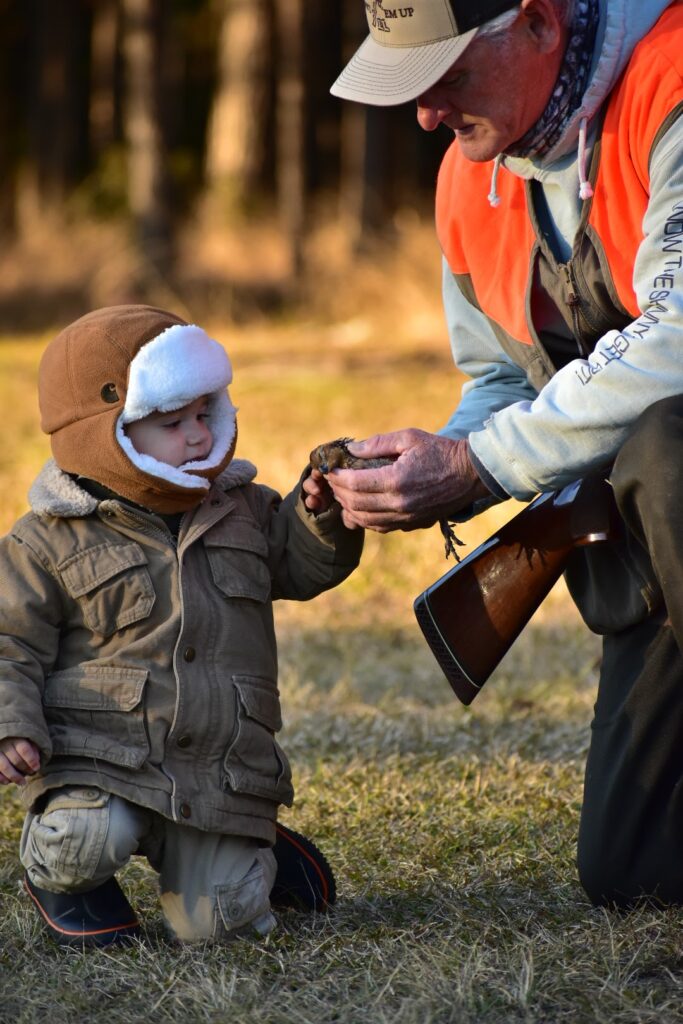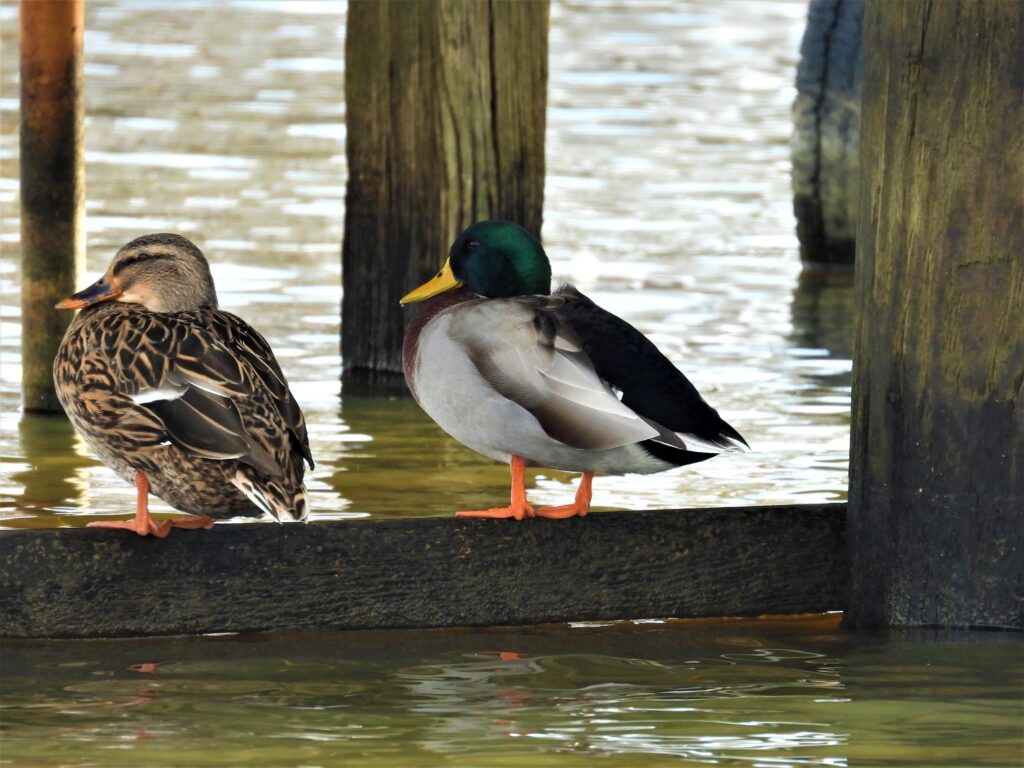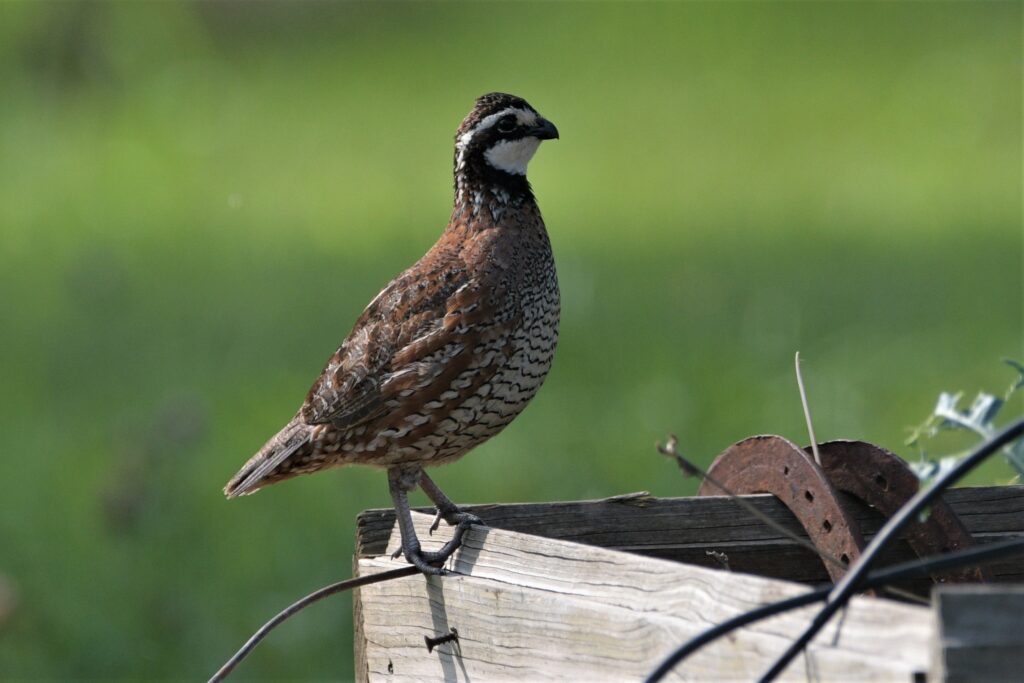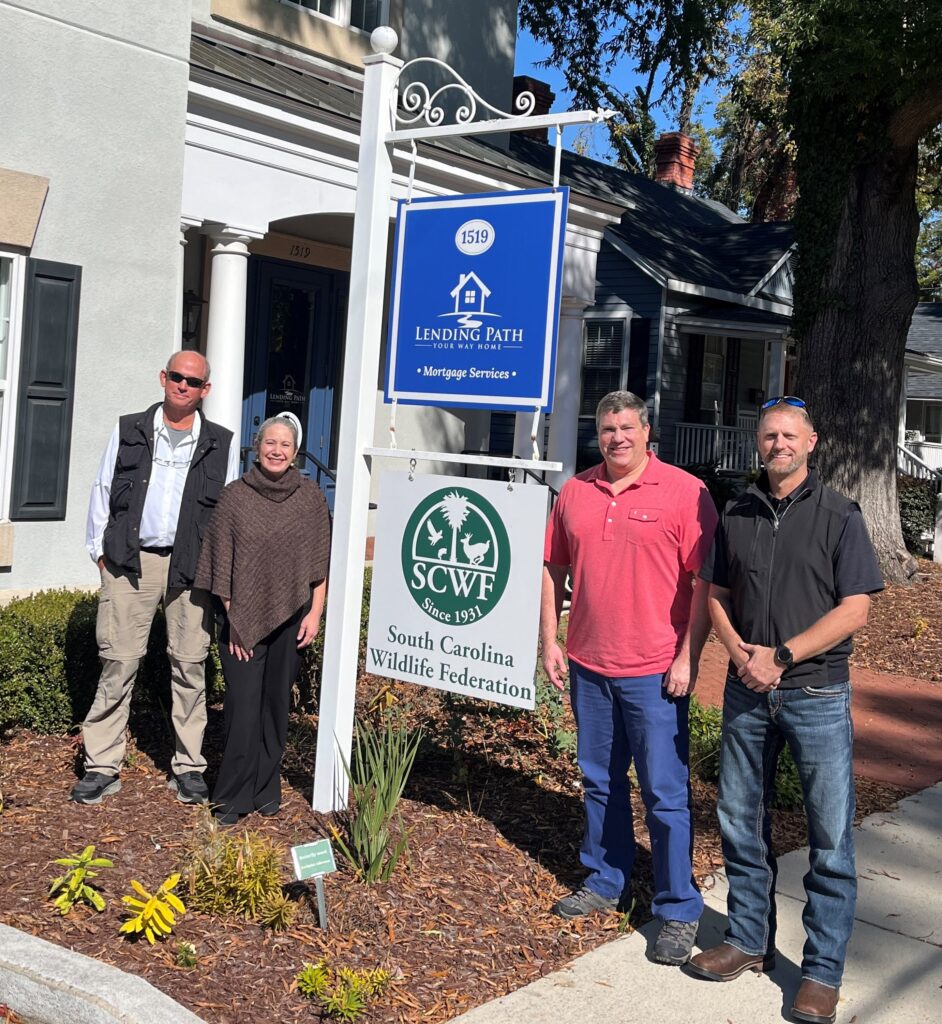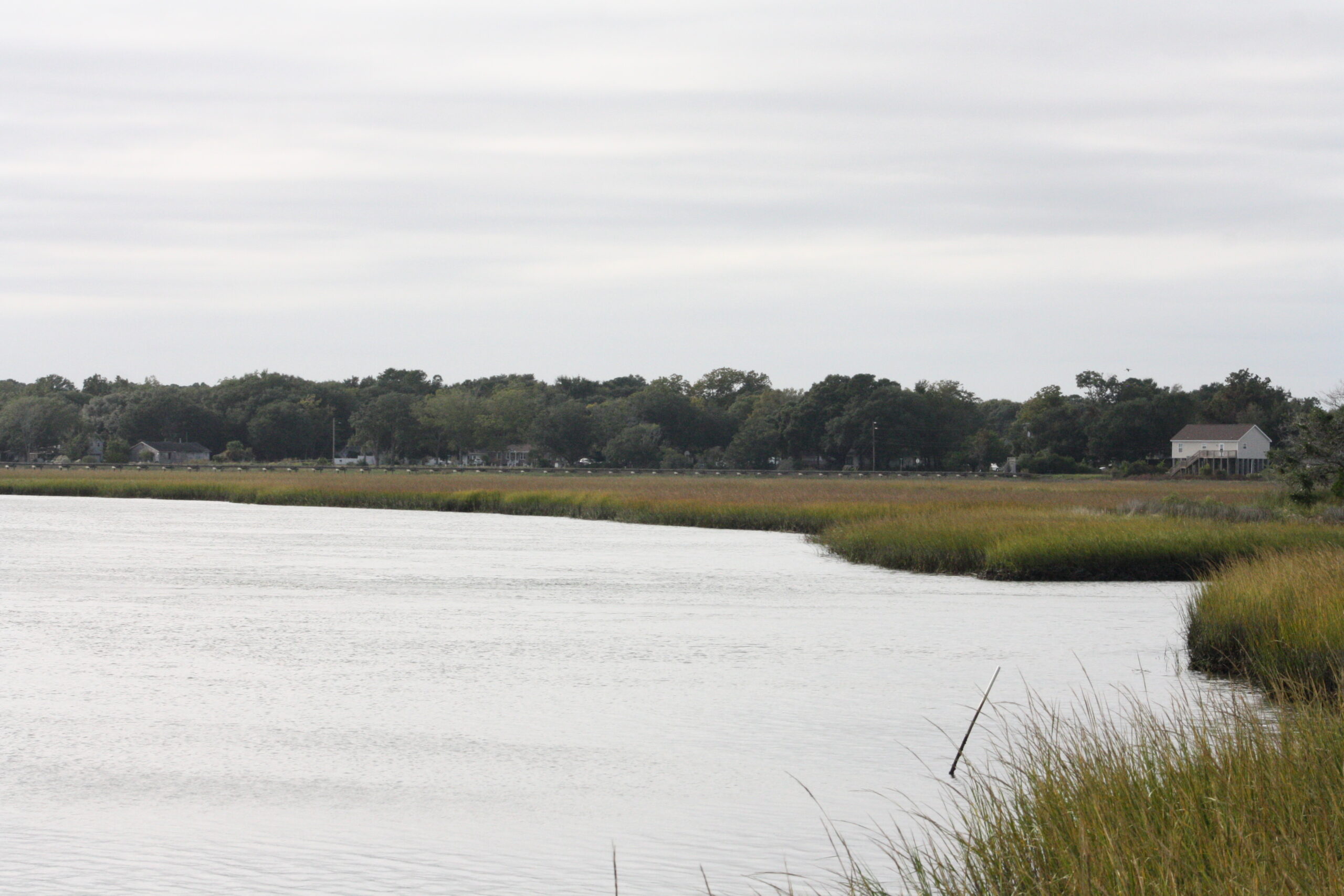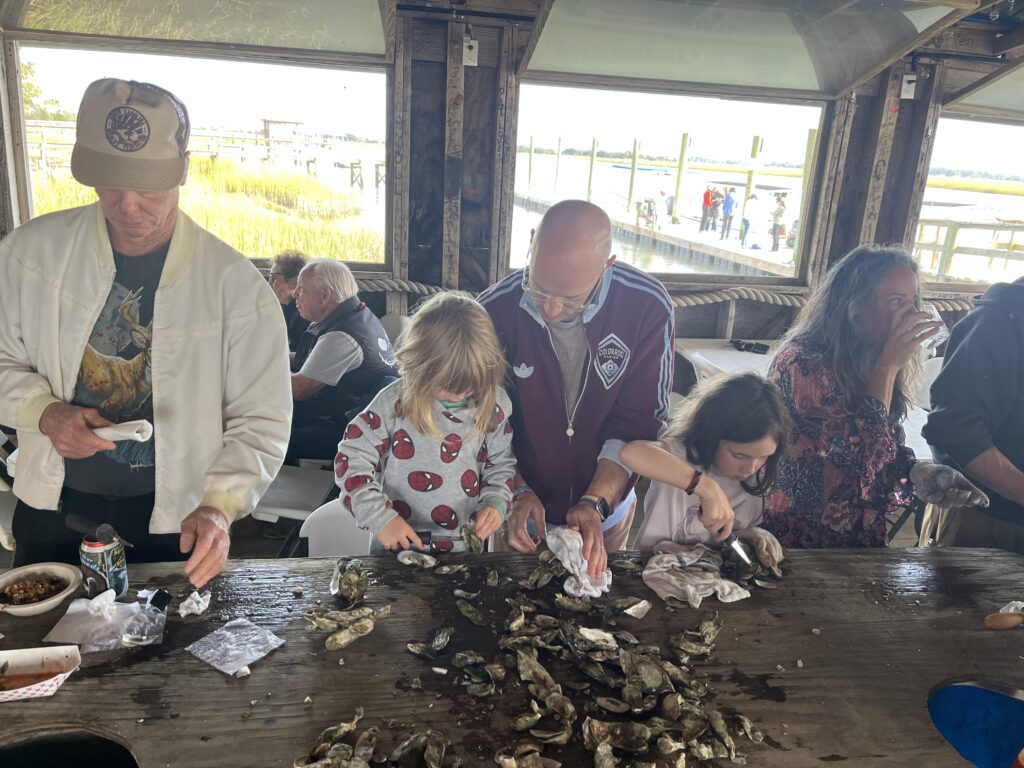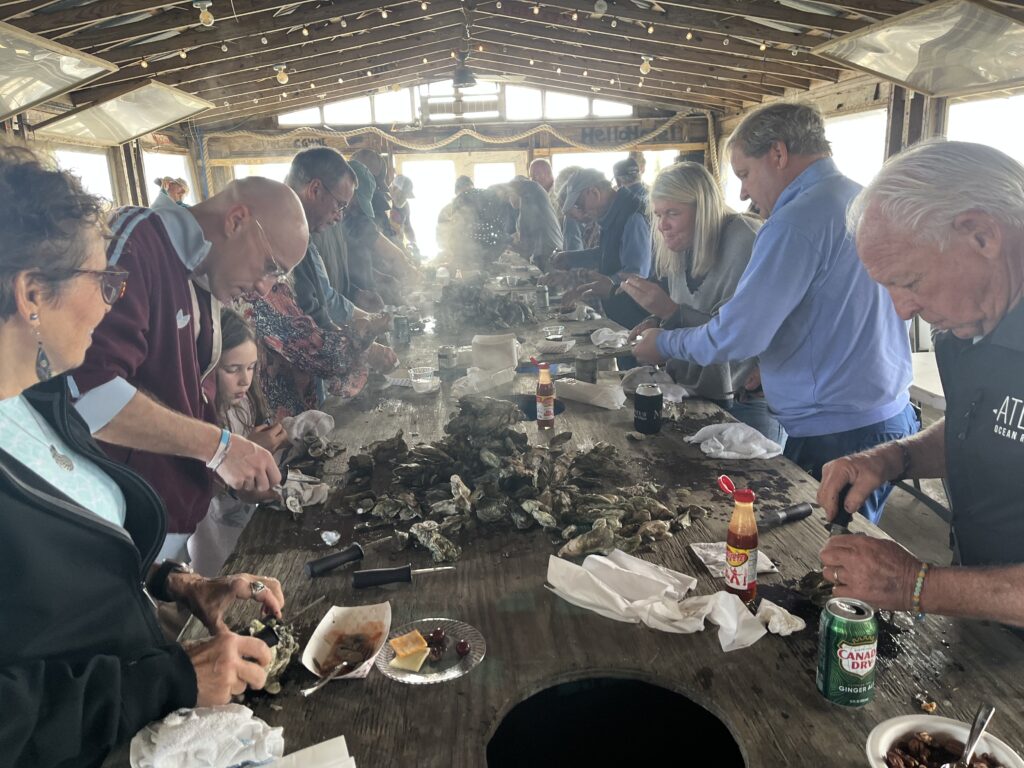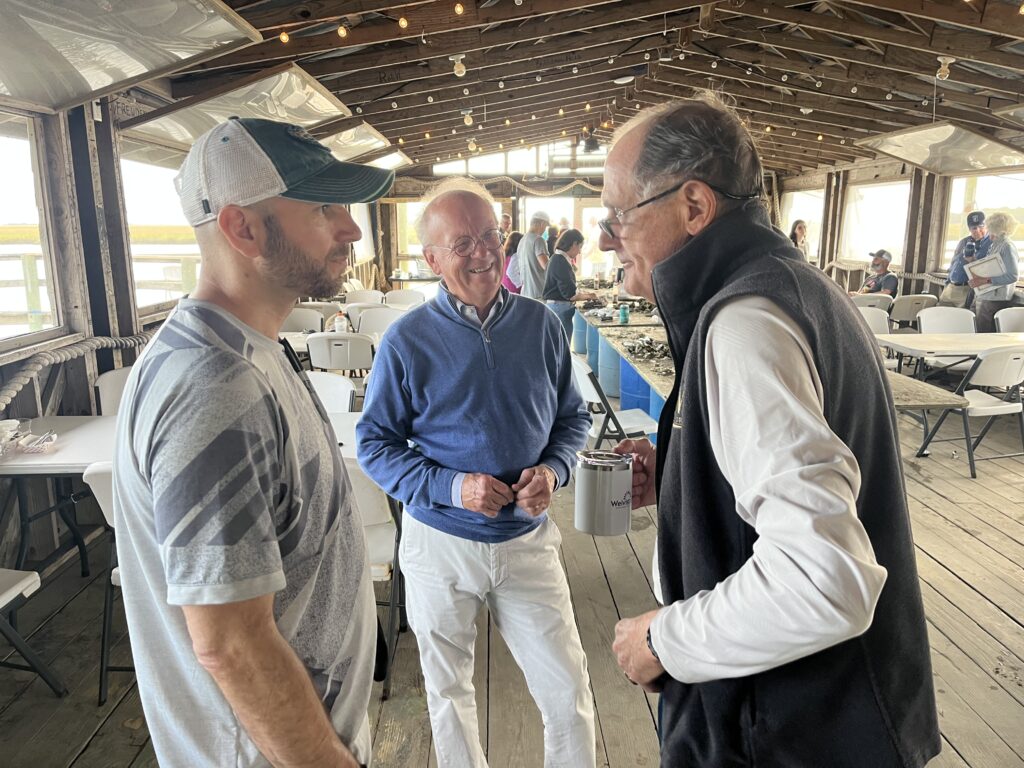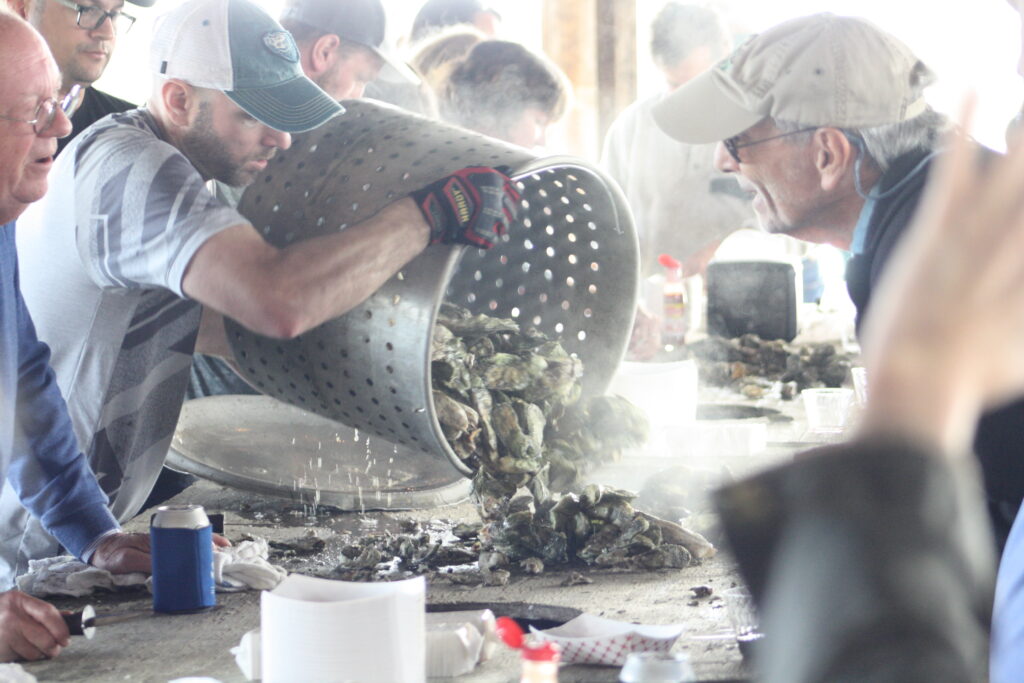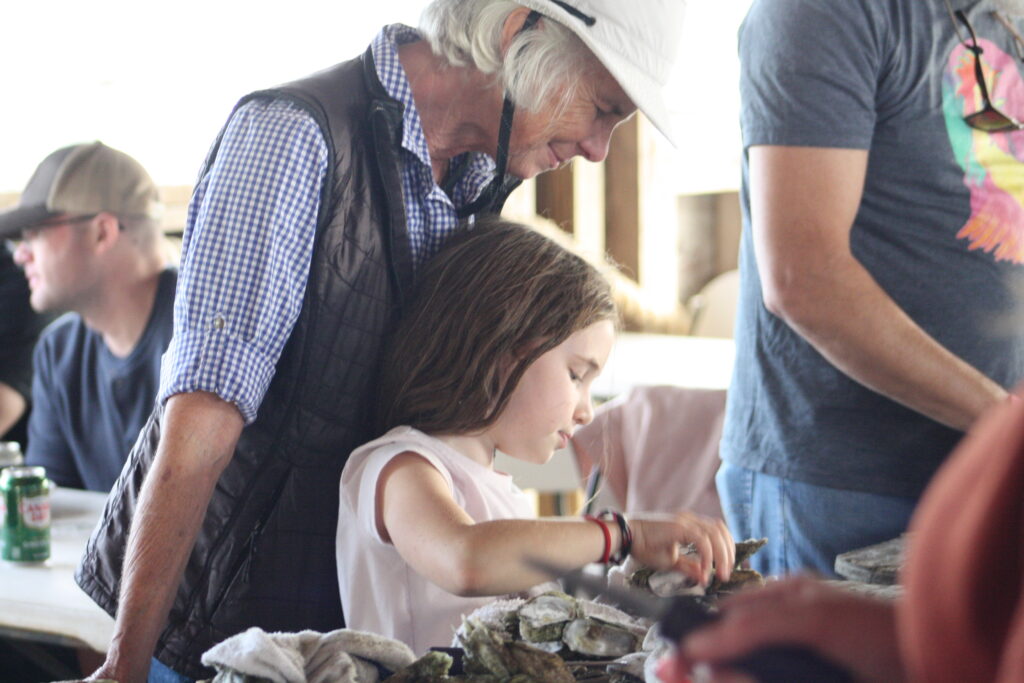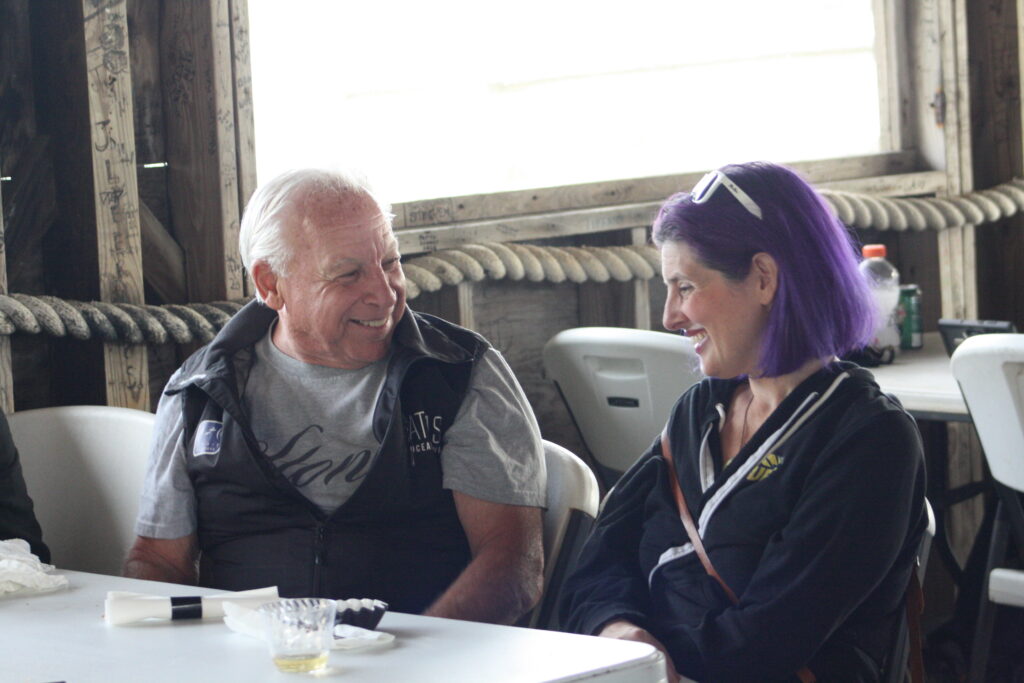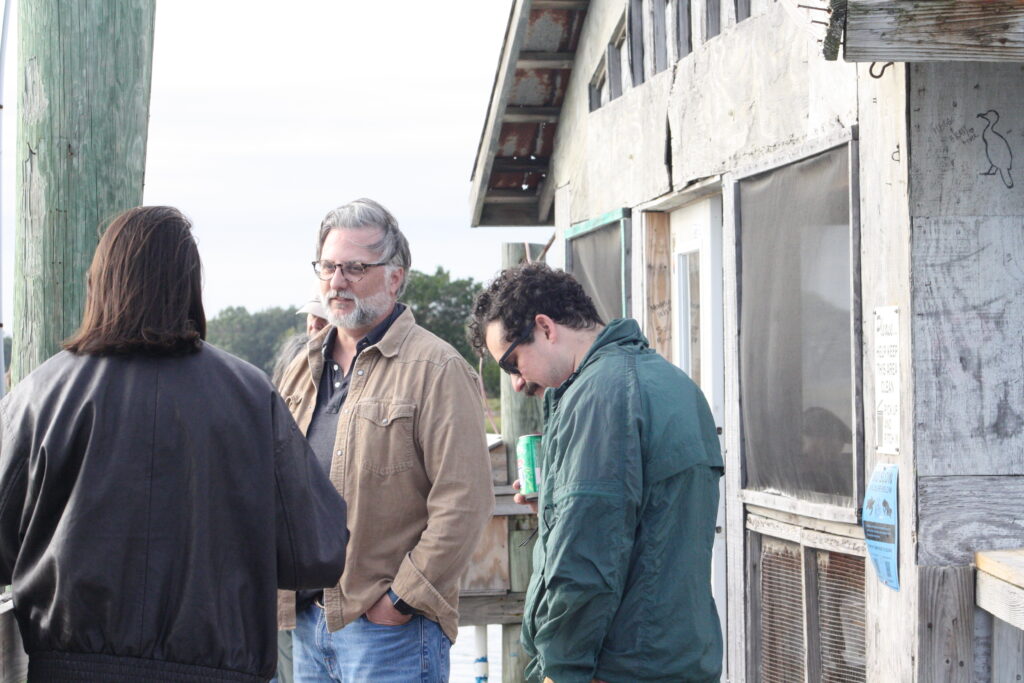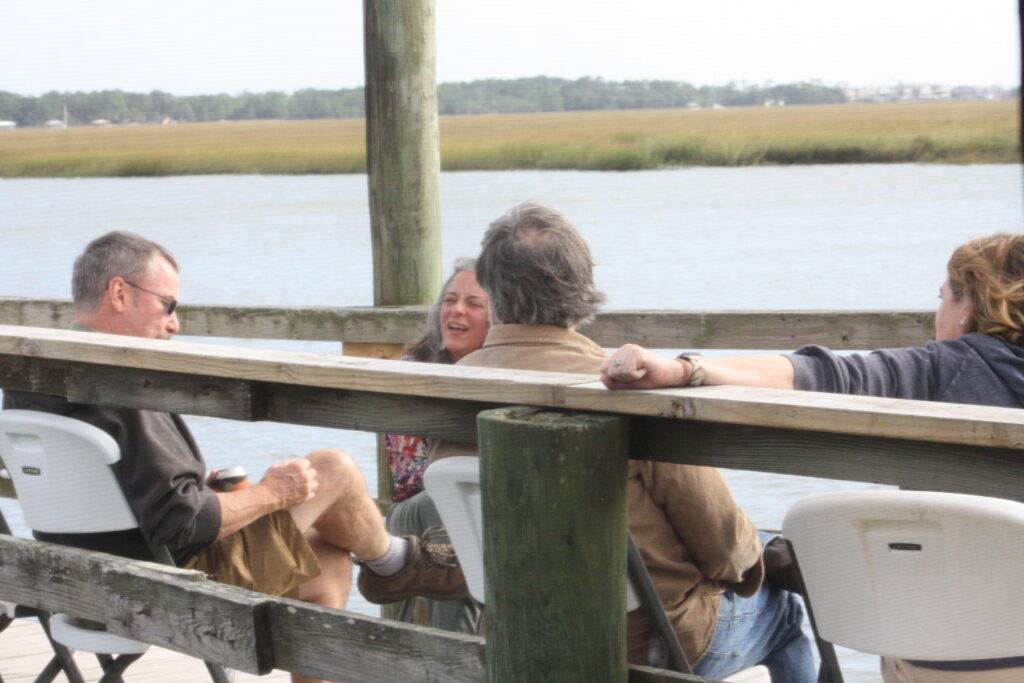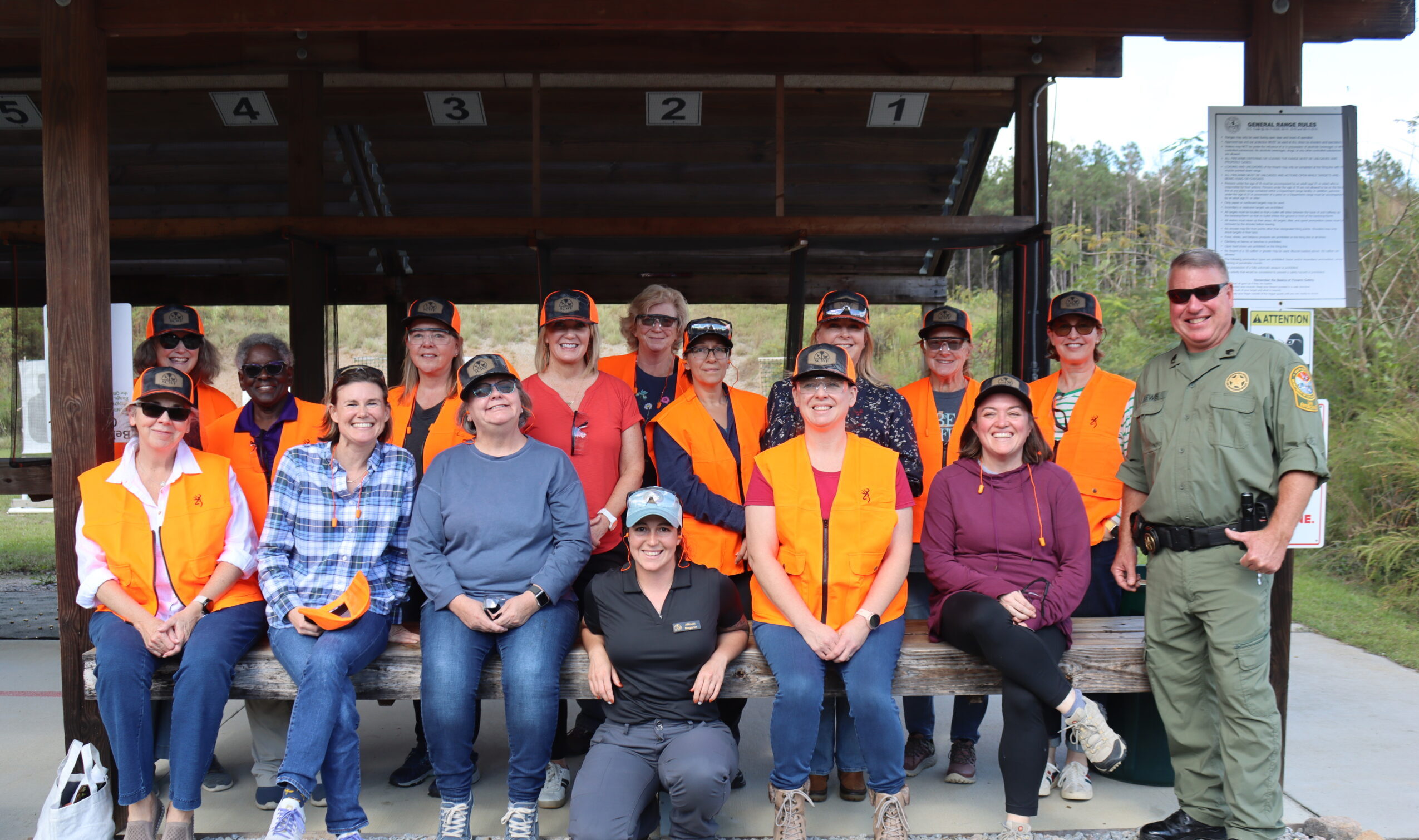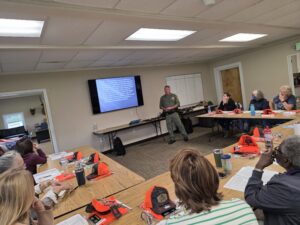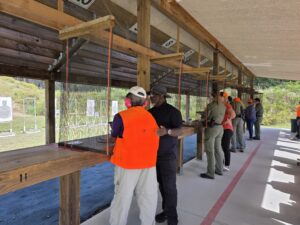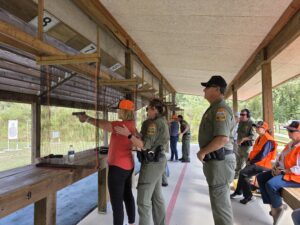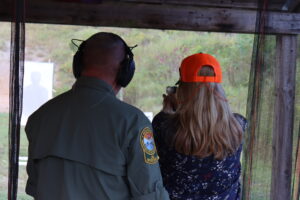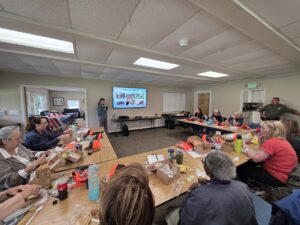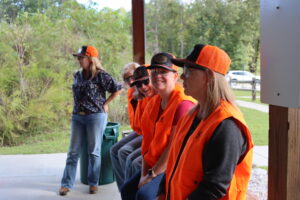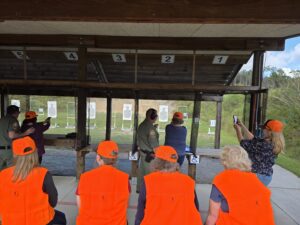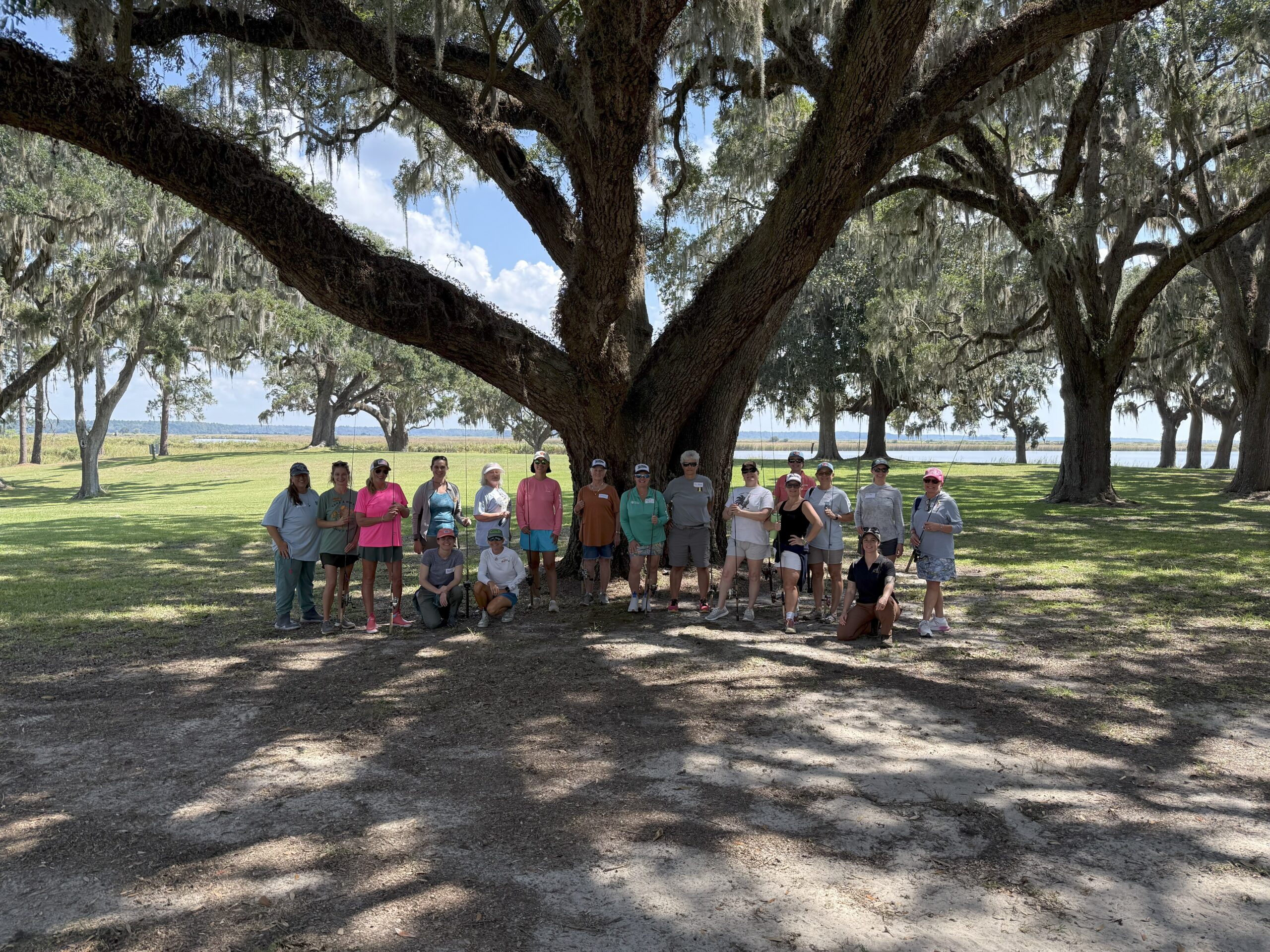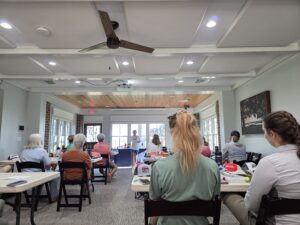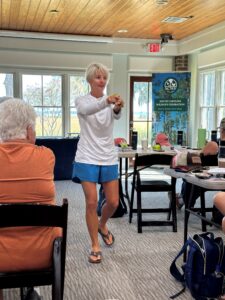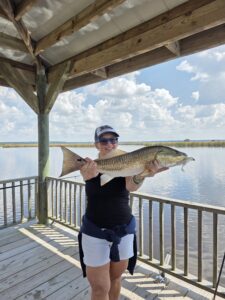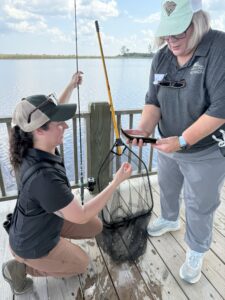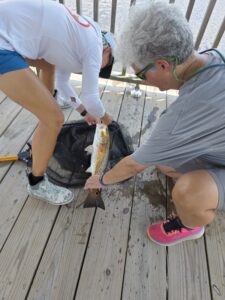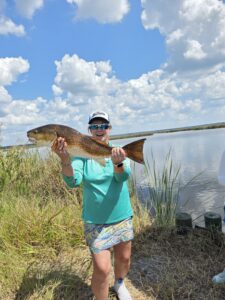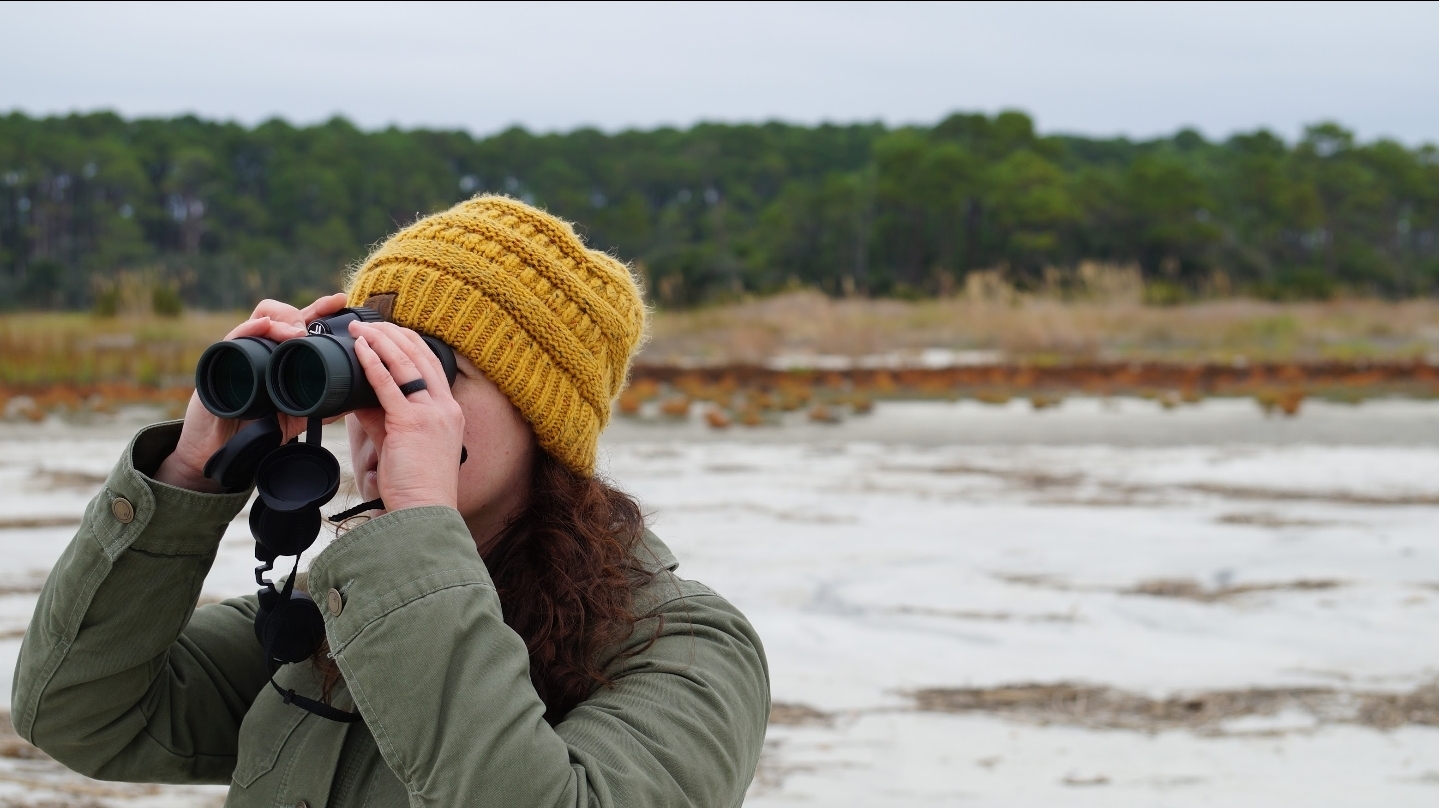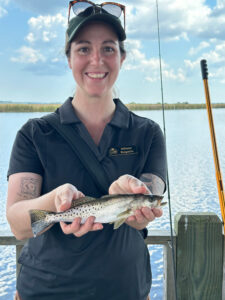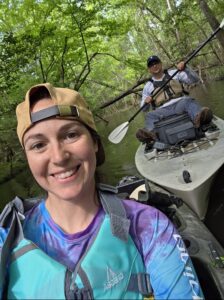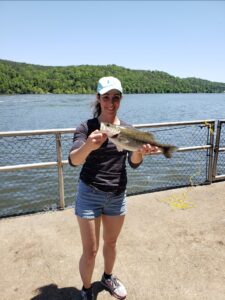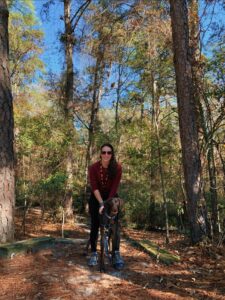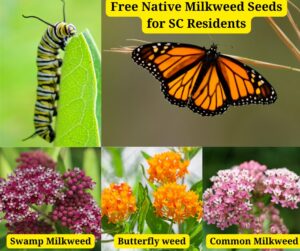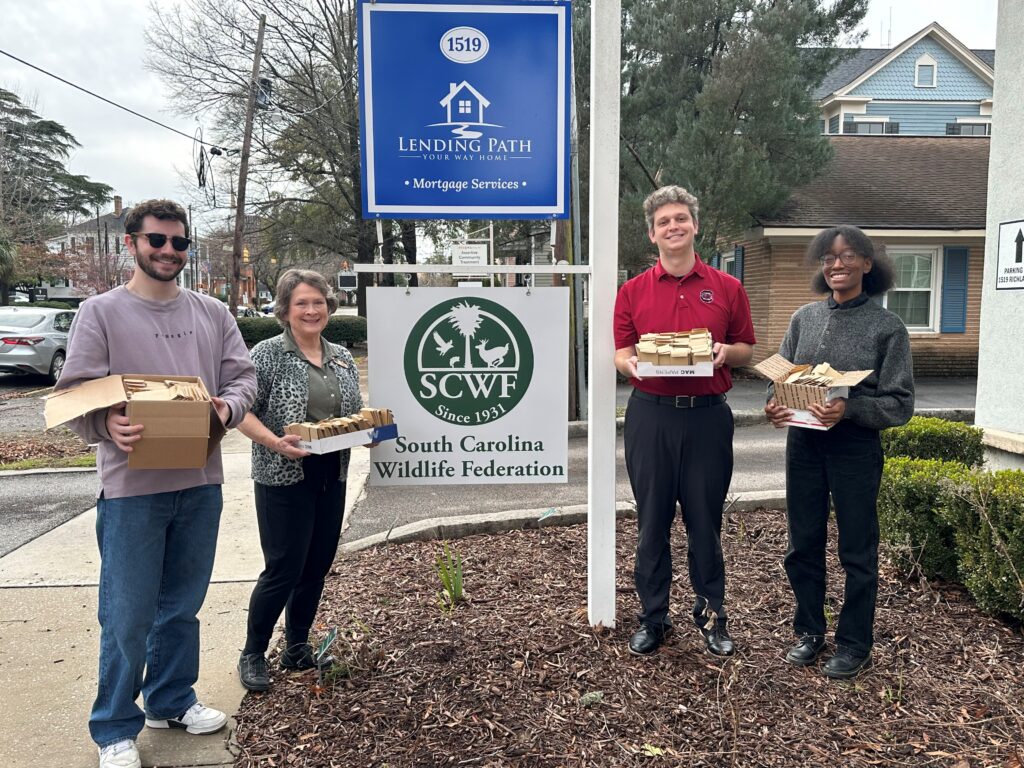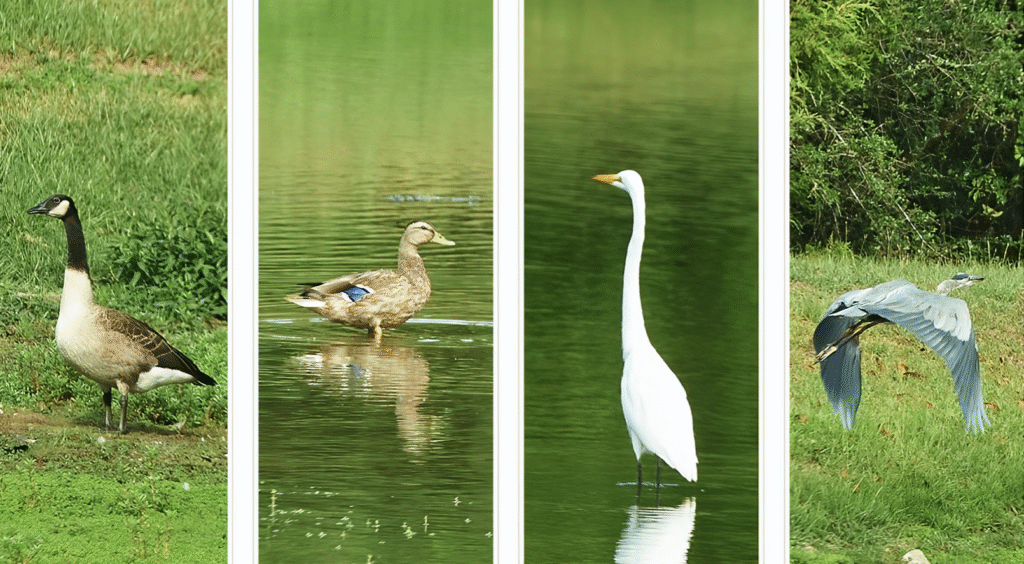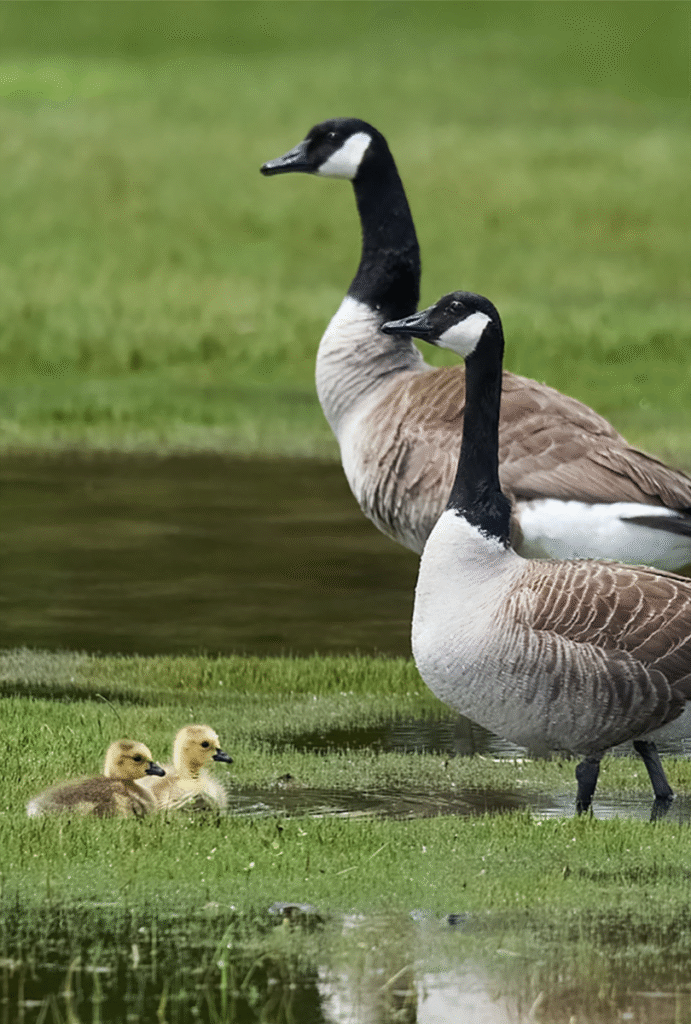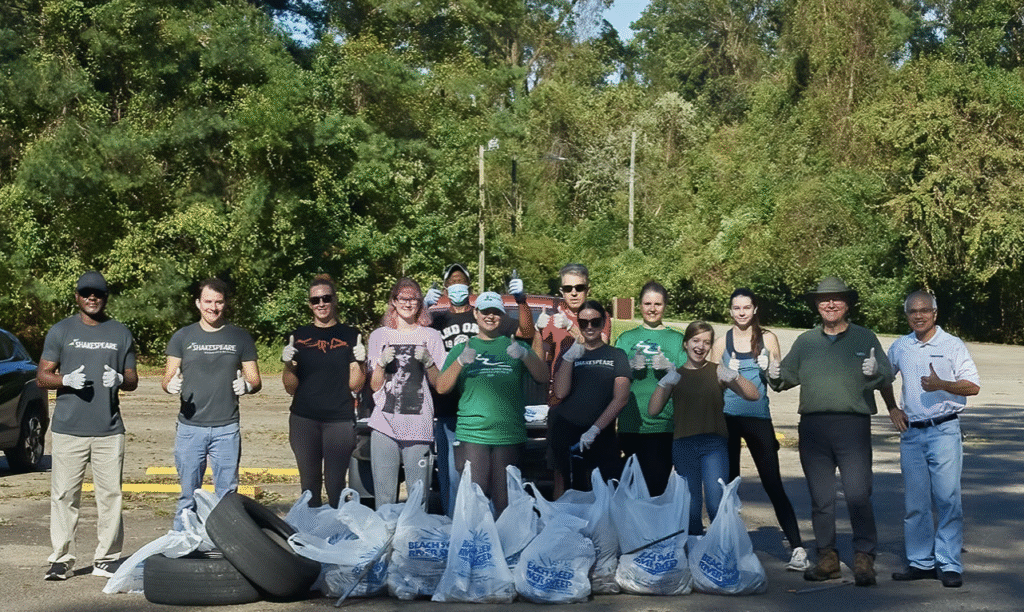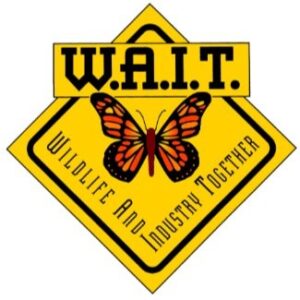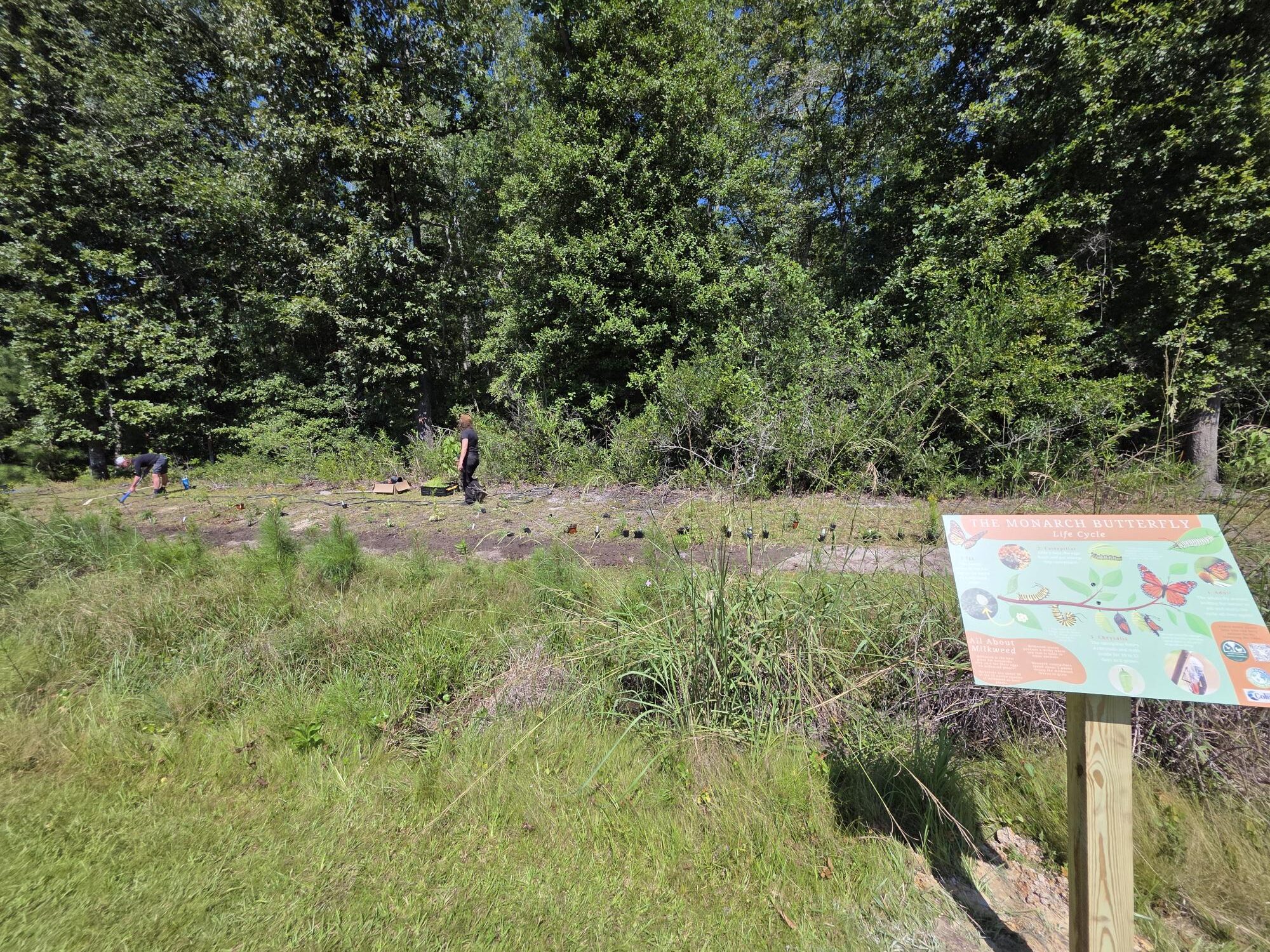On the hunt: South Carolina is wild about game by Becky Lacy was published in the Charleston City Paper on November 13, 2025.
Be it deer, duck or quail, hundreds of thousands of South Carolinians hunt annually. It’s a way of life for many. And the vast majority of those who hunt do so for the meat.
Whether preparing duck in a restaurant kitchen or raising birds at the country’s largest quail farm, hunting is intrinsic for many in South Carolina.
A lifelong love of duck
River Hill, executive chef at Charleston’s Honeysuckle Rose, grew up in Florence where he spent a lot of time outside. Whether exploring the woods behind his house or fishing and camping at one of the area’s rivers, he loves the land.
“Connecting with nature has always been an integral part of my life,” he said. “My love of duck hunting started at a very young age as it was something that my dad and I did together. It almost felt like a special event.”
Since duck season in South Carolina only lasts for about two months each year, he recalls spending most of the year looking forward to the next season. He and his dad would wake up at 4 a.m. and be in the woods an hour later, waiting for the ducks to fly over. Sometimes they would bring home ducks and prepare them for breakfast with bacon and cheddar grits. And sometimes they wouldn’t see a single bird fly. But the outcome didn’t matter.
“There’s something truly humbling about being immersed in nature, especially when everything is dark and quiet around you,” Hill said. “Even more so when you’re experiencing the moment with people you love. I learned it’s more important to appreciate the time spent together than what you’re trying to hunt.”
Now at the helm of the Honeysuckle Rose kitchen, he said he feels a great responsibility serving duck.
“I think, if you are going to take an animal’s life, you should pay it the respect it deserves by using every part of it,” Hill shared. “Since I started cooking, butchery has always interested me. Using technique and knowledge of anatomy, you can turn every part of an animal into an ingredient in a recipe that not only feeds people, but makes them happy.”
While breast and leg meat are the most frequently used parts of a duck, Hill said he finds creative ways to use the whole animal to make sure nothing goes to waste. One of his favorite parts of being a chef is getting imaginative with parts that people aren’t really used to eating.
He takes the liver and sweats it down with aromatics like shallot, garlic and thyme. He emulsifies it with cream and butter for a duck liver mousse. He then serves the mousse with a watermelon rind mostarda, grilled sourdough and fresh herbs. He also uses the neck to make a roulade and the feet and wings as the base of a flavorful stock in his duck confit and buttermilk dumplings dish.
While Hill can make magic out of any part of a duck, it is duck breast that he loves cooking most. He starts it in a cold cast iron pan and slowly renders the fat. Once the fat is mostly out and the skin starts to brown, he turns the heat up to crisp the skin before basting the duck in its own fat.
“Cooking duck breast is similar to cooking fish,” Hill said. “You want to do about 90% of the cooking on one side then flip it right at the end. After flipping, I throw in a good knob of butter, some thyme and a couple of smashed garlic cloves. As the butter browns and gets foamy, I keep basting. It adds so much flavor.”
Hill’s love of game is lifelong, both in the woods and in the kitchen. “I absolutely love working with wild game,” he said. “You can really taste the terroir and what the animal’s diet consisted of. A lot of people have certain preconceived notions about what wild game animals are going to taste like, and I love the challenge of presenting a wild game dish in a way that is approachable and delicious.”
Quail yeah
Manchester Farms outside of Columbia was founded in 1974 by Bill Odom. It was the first quail farm in the United States and today remains one of the largest quail producers in the country. The second-generation, family-owned farm is now owned and operated by Odom’s daughter and her husband, Brittney and Matt Miller.
Manchester raises Pharaoh quail, a breed that originated in Asia. These birds are adaptable to a farm environment and are less susceptible to disease. They grow from chick to full-sized adult in just five weeks, and the females can produce up to 300 eggs per year. Manchester breeds, hatches, raises and harvests around 3 million birds annually.
“When my dad was asked to interview with a company in the early 1970s, they flew him to New Jersey,” said Brittney. “At the end of the interview, he asked ‘how long is your hunting season?’ They responded, ‘two weeks’ and he replied, ‘Thank you for your time and flew home.’
“That’s when my dad started Manchester Farms. He is an avid quail hunter and started dressing quail in our backyard for neighbors almost 55 years ago. Game and South Carolina are yin and yang. Much of South Carolina’s population is largely hunters or their family members hunt.
“Protecting the land from being overdeveloped to protect the nature and game of South Carolina is critical. Manchester Farms is deeply rooted with game as that is our heritage and our love for hunters and DNR (the S.C.Department of Natural Resources).”
Today, food service companies are big buyers of quail meat. Top-tier distributors like Sysco, US Foods, Shamrock and smaller specialty businesses carry Manchester Farms quail.
Due to the health benefits of quail eggs, there has been huge mainstream growth for the product. Quail eggs are rich in protein, vitamins (A, B12 and D) and minerals like iron, selenium and zinc. They also have antioxidants and essential fatty acids. All these components help boost immunity, strengthen bone health, regulate blood sugar and improve brain function and eye health. Quail eggs and meat truly are superfoods.
Quail season in South Carolina lasts from late fall and into winter, starting the Monday before Thanksgiving and running until March 1. While people still hunt wild quail, there are very few wild birds in the state. Manchester often ships frozen quail to hunting camps to serve to guests so hunters can take home any wild birds they shoot.
Quail is versatile in the kitchen. While fried quail is very popular, you can also grill, bake and sauté it, similar to how you would treat other poultry. And if cooking quail at home isn’t for you, Manchester Farms product can be found at some of Charleston’s best restaurants including The Glass Onion, Halls Chophouse, Husk and Lowland.
Conservation, education and licensing
Sara Green is the executive director of the South Carolina Wildlife Federation (SCWF), founded in 1931 by hunters and anglers who were concerned about the impact that humans were having on wildlife habitat. It’s the state’s oldest conservation group. Green worries that that the decline of any wildlife population is habitat loss. The clear-cutting of land as well as air and water pollution contribute to habitat loss, and SCWF actively works to conserve land and enhance wildlife habitat.
“In South Carolina, and across the country, sportsmen were responsible for starting the conservation movement and pressing for hunting regulations based on science to protect game species from over-harvest,” Green said. “Ensuring that future generations would also be able to hunt and fish was a major motivating factor.”
Green noted hunters still play a significant role in conservation efforts. They buy hunting licenses and tags, and pay taxes on related equipment, which means considerable funding for state wildlife management. This, in turn, supports habitat restoration, research and land acquisition for wildlife preservation. The impact from conservation dollars from hunters for habitat management far outweighs the harvests of individual animals, she said.
“Most South Carolina hunters are hunting for game species to use the meat to feed their families,” she said. “Deer, turkey and ducks are the main species hunted. [Hunters] greatly appreciate the opportunity to carry on a tradition that often goes back several generations, and also to connect with the land, notice the birds, squirrels and plants, observe the mist on the lake as the sun rises, and just experience the peace and serenity of nature.”
Duck and dumplings
Recipe by River Hill, executive chef, Honeysuckle Rose
Yield: 4 to 6 servings
Start the duck breasts
- 2 duck breasts, butchered and scored
- 2 tablespoons unsalted butter
- ¼ cup fresh aromatic herbs, chopped — dill, parsley, chive, tarragon, celery leaves
- 3 cloves garlic, minced (reserve scrapes for stock)
In a cold, dry cast iron pan, add the duck breasts and place over medium-low heat, allowing the fat to render slowly.
When the skin begins to crisp, turn the heat up to medium high. Using a spoon, baste the breast in its own fat.
Flip the breast. Add butter and fresh herbs and baste until the internal temperature of the duck is around 135 degrees Fahrenheit, or until the skin is golden brown and crispy to
the touch.
Remove the duck from heat. Allow to rest until internal temperature reaches
145 degrees Fahrenheit. While the breast is resting, make the dumplings.
Chef’s note: 90% of the cooking will be done on the skin side. Once flipped, pay careful attention as to not overcook.
To make the dumplings
- 1 cup self-rising flour
- ¾ cups buttermilk
- 2 tablespoons fresh chives, finely chopped
- 1 tablespoon salt
- 1 teaspoon ground black pepper
In a large mixing bowl, add flour, buttermilk, chives, salt and pepper. Mix until all ingredients are fully incorporated.
To finish the dish
- 2 tablespoons Canola oil
- 2 Vidalia sweet onions, small diced
- 3 large carrots, peeled and small diced
- 3 ribs celery, small diced (reserve celery leaves for garnish)
- 3 cloves garlic, minced
- 2 quarts chicken stock
- 1 cup duck confit (store bought)
- Salt, to taste
- Pepper, to taste
- Hot sauce, to taste
- Fresh lemon juice, to taste
- 2 duck breasts, sliced ¼” per slice
- Fresh aromatic herbs likes dill, parsley, chive, tarragon and celery leaves, rough chopped
In a stock pot or Dutch oven, add oil and put over medium heat.
Add diced onion, carrots and celery and sweat until onions are translucent,
but not browned.
Add garlic and sweat until soft, add chicken stock and bring to a simmer.
Using 2 spoons, scoop a spoon full of the dumpling dough and carefully place it into the simmering duck stock. Repeat this step, one dumpling at a time, until the surface of the pot is full and there’s no more space to drop the dumplings in.
Cover the pot and let the dumplings simmer for about 8 mins or until the dumplings are slightly firm but still pillowy.
Using a spoon, push dumplings to the side and make a hole to add pulled duck confit meat into the duck stock.
Remove pot from heat. Add salt and pepper, hot sauce and fresh lemon juice to taste.
To plate and serve
Using a ladle, spoon out some of the dumplings and duck confit from the pot into desired serving bowls.
Thinly slice the duck breasts. Layer four to five slices on one side of each bowl.
To finish, roughly chop the fine herbs and celery leaves and garnish your bowl of duck and dumplings to your liking.

